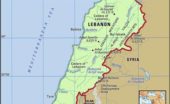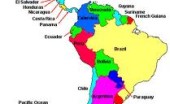Molly Minturn - My family is heartbroken to share that my father died in surgery on Monday, Feb. 10. It…
Wednesday Night #1573
Written by Diana Thebaud Nicholson // April 25, 2012 // Bert Revenaz, People Meta, Reports, Wednesday Nights // 1 Comment
– Would we be having the discussion of the quality and purpose of education were we not in a period of prolonged economic crisis?
– We are very definitely in a chaotic period. We can see all the signs of Armageddon, the end of the system and the way of life that we are familiar with. For the time being, we don’t see what is going to replace that.
– The great problem is the middle ground: those who are quite bright, but not poor enough
– At one point in time, the role of higher of education was to develop an enlightened citizenry and ensure that we would have a quality of governance
Bert Revenaz introduced Richard Tipper, Managing Director of Ecometrica mentioning that Richard was part of the IPCC panel that won the Nobel Peace Prize in 2007. We believe this is Wednesday Night’s first Nobel Laureate. Richard is an agricultural economist whose impressive background includes working as a scientific and policy adviser on climate change issues for a wide range of governmental, business and international organizations, including the UK and Mexican Governments, BP and BAT, the OECD and UNEP. He has been a Lead Author on two IPCC reports and was part of the management team for the World Business Council for Sustainable Development’s initiative on greenhouse gas accounting for projects.
Climate change
Taking advantage of the climate change expertise present, a question was asked about the significance of the recent news that 50 Top Astronauts, Scientists, Engineers Sign Letter Claiming Extremist GISS Is Turning NASA Into A Laughing Stock!
[Editor’s note: here is a quote. We believe the claims by NASA and GISS, that man-made carbon dioxide is having a catastrophic impact on global climate change are not substantiated, especially when considering thousands of years of empirical data.]
A lengthy and highly informative discussion followed during which it was emphasized that while there have been important temperature fluctuations in the past, e.g. during the Middle Ages, today’s rate of change is far more rapid. Also, bear in mind that while some parts of the world grow hotter, others may experience cooling. Where are the tipping points? We don’t know, but climate scientists are concerned that we are close to reaching them. While acknowledging the vital role of the oceans as carbon sinks, it is clear that we don’t know enough about how much they can absorb and what kind of changes are happening in their depths.
Education
Given the number of those gathered around the table who were educated elsewhere, the conversation quickly turned to the stand-off between the striking students, the CEGEP and university authorities, and the government.
While Quebec has tuition fees that are not only the lowest in Canada, but almost inconsequential by other countries’ standards, the students still incur debts that must be paid back, and many face a serious lack of employment. [Note that French students coming to Quebec to study pay the same fees as Quebec students, while those coming from ROC pay more, and foreign students even more.]
The current model in North America and some other regimes whereby students emerge from university, especially post-secondary studies, with huge debts means that even those who have good jobs are faced with paying back those loans rather than building a family, obtaining a mortgage, buying a house and otherwise stimulating the economy. Richard pointed out that in Britain the average age of a first-time homeowner has risen by about ten years.
Curiously, the recent tripling of fees at British universities caused relatively limited reaction and applications to the universities have increased measurably. Bursaries are generous and less advantaged students now have a real opportunity. However, as in so many other sectors of the economy, the problem is those people who are “quite good, but not poor enough”.
As the cost of education rises is there an equivalent improvement in quality? Not necessarily. As Reuven Brenner has pointed out , the rapid expansion of universities in response to increasingly large student bodies means more professors and lecturers, not necessarily always the best and brightest. On the other hand, in response to student demands, unionization and numerous social pressures, universities have become more bureaucratic.
Given the parlous state of the economy and the lack of employment opportunities, it is little wonder that young people are upset and nervous. However, it is becoming apparent that the demonstrations in Quebec are about much more than student fees with demands for a complete revision of the social contract. Moreover, the rising tone of violence indicates that the movement has been infiltrated by many non-student interests.
Upon reflection one participant suggested that it may be time for McGill to devise means whereby it could pull itself out of the web of the MEQ and the Quebec government, assuming privatisation would be a legally obtainable objective, adding that there was some discussion about offering a privately funded Executive MBA program but not sure whether the idea came to anything. If so, why not all degree programs?
There are no doubt numerous consequences, some good, some bad of such a move, but all things being more or less equal, perhaps the time has come?
Europe
One of the goals of the creation of the European Union was to reduce existing social and political tensions between nationalities and ethnicities. Instead there is currently an increasing exacerbation as exemplified by the Germans’ distorted view of the Greeks as a nation of lazy, tax-avoiding, unproductive people, a view that is quickly sown to be erroneous when the work habits of the two nations are analyzed. A recent visitor to Spain and the South of France noted that he had not seen one German license plate during his travels; moreover, southern Europeans display an intense dislike of Germans. And there is of course, the backlash against austerity, which is viewed as being imposed by … the Germans. It is important to remember however that while Euro-scepticism has been alive and well, particularly in North America, for many years, there is nothing more politically and economically ambitious as the European Union. Europe has a very farsighted and long-range plan to achieve, which admittedly could be derailed by the voting-in of right-wing governments, but will likely continue to progress, while encountering bumps along the way.
Innovation
With four successful entrepreneurs at the table, the discussion turned to the critical question of support for innovation.
Luc Sirois spoke in glowing terms of the presentations earlier in the evening by the four ‘social entrepreneur’ Sauvé Scholars, in particular citing the Hackathon, Hacking Health successfully organized by Scholar Jeeshan Chowdhury and supported by Luc’s firm, Nightingale.
Although Montreal is still regarded as a “Silicon Valley North” , the number of venture capital firms has decreased by two-thirds over the last years (as is true throughout North America) and what is left is largely the pillars of government-subsidized funds like the EDC, Caisse, Fonds de Solidarité. Thus, much innovation does not ever get out of the lab because there’s nowhere to turn for funding. What a young entrepreneur could accomplish fifteen years ago is no longer possible because the bar is simply too high.
In the life sciences area, there has been an abysmal deterioration of avenues of support. But there are some encouraging signs for some firms. MedTech is a steadily growing field and one that offers promising investment opportunities – low returns, but low risks.
Nigel Penney and Luc are both doing their part (and then some) in fostering science education for kids. Nigel’s Science Camp for Kids, in partnership with McGill, has found a happy home at Westmount High this summer and enrollment is high. There will be three sessions, respectively for ages 6 and 7, 8 to 10, and 11 to 13, each lasting two weeks. [Editor’s note: see more from Westmount Examiner ]
Luc is chairman of the Conseil du Loisir Scientifique de la région Métropolitaine , which focuses on providing kids and teenagers with opportunities to explore Science, Technology and Entrepreneurship. The CLSM manages such programs as the Science Fairs, the Debrouillards (Whiz Kids) Science Clubs, the Engineering Challenges (Défi Génie Inventif), and a number of promotional activities for careers in IT and Telecom, Physics, Aeronautics, Energy.
++++++++++++++++++++
The Prologue
Note: Last week we advertised that Bert Revenaz would be with us. He forgot to tell us that he had delayed his trip one week, but assures us that he will be with us THIS Wednesday
With the plethora of anniversaries in the month of April, following the Titanic centenary, there is much in the news about the Queen’s 86th birthday (April 21), however, as contrarians, we opt to mark this Wednesday as the eve of the 89th anniversary of the Queen Mother’s wedding to the then-Duke of York, later to become King George VI.
What an election year! They just keep coming.
Sunday’s first round of the French presidential election could presage a return of the Left to the Elysée.
[Update on French elections Now that the pundits’ predictions are confirmed that Hollande and Sarkozy will go through to the second round (with 27.5% and 26.6% respectively) much discussion centres on the 19% polled by the French National Front, led by Marine Le Pen, taking her into third place. Whether or not her voters will support Hollande or Sarkozy in the final run off on 6th May is obviously a vital point. Especially as Sarkozy will simultaneously be wooing them and the 8.9% of centrists who voted for Bayou.]
There is a good piece from the Washington Post “Why you should care about the French election”
Also, bearing out what Kimon has remarked is the BBC’s Nicolas Sarkozy: Why is the French president so disliked?
Kimon has added to his previously expressed views, “unlike the popular perception, Sarkozy has implemented some centrist policies and is more to the left than was Tony Blair. The exception is the obsession with austerity but that obsession is also shared with Hollande who will likely pull a Papandreou once elected, which will lead to some very interesting results.” However, no analysis can hold a candle to that of Conrad Black who writes in Whither the Fifth Republic? : “If Francois Hollande is elected president of France on May 6, de Gaulle’s mighty efforts to create a durably politically serious France will not have availed. It will be back to the frivolity of the Fourth Republic, under the gaze of an unamused but triumphant Germany.” As almost always, whether one agrees or not with his withering assessment of the candidates, it is a joy to read him.
Canada
Alberta’s contest on Monday is no less intriguing. RCI reports that polls show that the Wildrose Party is mounting a strong challenge to the Progressive Conservative Party and Alberta could see a change of government for the first time in about 40 years. What influence will some of the recent injudicious declarations by Wildrose candidates have on the outcome? What is at stake?
Meantime things have been relatively quiet on the national political front while the parliamentarians were on Easter break and the PM in Latin America campaigning for trade agreements/advantages. However things will no doubt liven up again. Regarding trade, we commend to you the Ottawa Citizen editorial, The trade debate, again It raises excellent points.
Patrick Lagacé writes in the Globe & Mail that For Quebec, Canada’s westward shift translates into ‘de facto separation’
For the Canada/China watchers, David Kilgour offers this Globe & Mail story as relevant and perceptive: Bo Xilai’s ouster severs vital Canada-China link
And the Quebec students are always with us
There is not only no relief from the student demonstrations, they have become more disruptive, more destructive and increasingly related to the one-size-fits-all slogan of ‘social justice’ rather than the original target of the protest – the increase in tuition fees. Céline Cooper’s excellent op-ed on this subject, These symbols come with baggage , should be required reading for any intelligent debate. André Pratte also makes a strong case against the long-term effects of the students’ increasingly violent tactics Meanwhile, Andrew Coyne in a well argued column advocates that Students should pay for the entire cost of education —later Many of you may have missed Brendan Steven’s Quebec students must pay their share. The author is a third year political science & Canadian studies student at McGill and a co-founder of McGill’s Moderate Political Action Committee(ModPAC). He makes an excellent case.
We will limit ourselves to one remark; Gabriel Nadeau-Dubois, the spokesperson for CLASSE, has complained to the police that he is receiving online threats and that his address has been published. We wonder how much sympathy this generates among the politicians whose offices have been trashed, and the premier, whose home has been picketed by the student demonstrators. We would remind M. Nadeau-Dubois, that lack of privacy (and safety) goes with the territory.
Calendar Items
April 22-27 International Polar Year 2012 Conference at the Palais de Congrès – impressive program including keynote address by Dr. Gro Harlem Brundtland
Tuesday, April 24 – Dr. Mark Roper will address the AGM of the Patients and In-Patients committees of the MUHC
on LA PÉNURIE DE MÉDECINS DE FAMILLE AU QUÉBEC/THE FAMILY DOCTOR SHORTAGE IN QUEBEC,
4 p.m. room A6-105 of the Montreal General Hospital.
Thursday, April 26 – The Montreal Branch of the CIC presents the Hon. Irwin Cotler speaking on
Iran: Convergence of Threat, Convergence of Remedy




One Comment on "Wednesday Night #1573"
I want to share a story with you from Calgary Herald:
Government media minders are being dispatched to an international polar conference in Montreal to monitor and record what Environment Canada scientists say to reporters. The scientists will present the latest findings on everything from seabirds to Arctic ice and Environment Canada’s media office plans to intervene when the media approaches the researchers, Postmedia News has learned.
Media instructions, which are being described as a heavy-handed attempt to muzzle and intimidate the scientists, have been sent to the Environment Canada researchers attending the International Polar Year conference that started on Sunday and runs all week.
“If you are approached by the media, ask them for their business card and tell them that you will get back to them with a time for (an) interview,” the Environment Canada scientists were told by email late last week.
“Send a message to your media relations contact and they will organize the interview. They will most probably be with you during the interview to assist and record,” says the email obtained by Postmedia News.
Read more: http://www.canada.com/technology/Critics+instructions+Environment+Canada+scientists+Montreal+conference/6500175/story.html#ixzz29FE4mYkC